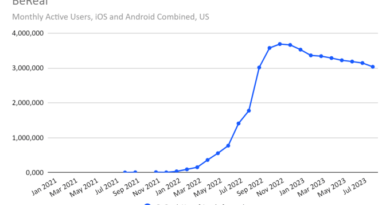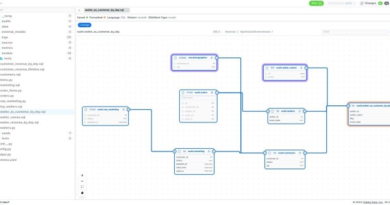Roami takes on Airbnb with creativity, grit and $14M
It takes a special kind of gumption to wake up in the morning and say “You know what? I can do better than Airbnb,” but that’s what Andreas King-Geovanis did with Roami. The company added $14 million of equity and venture debt, bringing its funding to a total of $29 million. The company used to be called Sextant Stays, and focuses on short-term rentals with apartment-style units. The company currently operates 500 units across South Florida and New Orleans.
Founded in 2016, Roami sprung from King-Geovanis’ belief that travelers should not be forced to choose between two flawed options: cramped and expensive hotel rooms or inconsistent and unpredictable vacation rentals. By managing the entire building — not just a few floors or units — Roami believes it can create a better experience.
“On paper, I came into the hospitality space as an underdog: no industry connections, no VC funding, no experience and no Wharton MBA. But I never thought of myself as an underdog because I knew it is easier to get those four things than what I, and every Roami team member, innately have: creativity and grit,” says King-Geovanis. “Starting a company as a bootstrapped founder gives you a perspective that can’t be emulated, but like any other team member at Roami, your position has to be earned each quarter. It is not a title for life.”
Bold words for a company backed by $29 million taking on Airbnb and its $81 billion market cap.
The company’s current round was led by Vigo Capital, and the company is planning to use the new capital to broaden its target markets. The company says it started with building a sustainable business before it focused on brand, hence the rebrand from Sextant Stays to Roami.
“Roami is fun, playful and better reflects the personality of our company and our guests,” says King-Geovanis, before outlining his targets for growth.
“We’re going to see a lot of M&A in the next two years — it’s still a highly fragmented industry that’s ripe for consolidation. Just 1% of the inventory on Airbnb is branded and professionalized. When you compare that to 72% in traditional hotels, you begin to realize how nascent our segment really is,” says King-Geovanis. “A few hotel brands — think Soho House or The Standard — have been wildly successful not just because of the level of service, but also because of the potential to meet other, interesting guests while staying there. Our mission is to inspire human connection so, later this year, we’re introducing a world-first: a floating, market-wide amenity. Through our partnership with Arkup, which is in its fourth year, Miami-based guests will have access to a one-of-a-kind space to connect with each other.”
The company says it will continue to double down on existing markets and create even more density, which drives profitability. The fundraise also gives Roami access to larger buildings (200+ units), which were previously out of reach. The company also says it will be investing in technology.
“This is a business that should be funded by the guests, and this fundraise gives us the scale and margins needed to self-fund future growth,” King-Geovanis says.
Taking on three industries
In the long term, the company has visions of taking on three trillion-dollar industries at once: hospitality, residential management and real estate.
“Guests will stay at a Roami, and have their most memorable vacation. Then, they will return home to their apartment, which Roami also manages. Imagine, for a moment, if The Standard was not just your go-to choice for travel, but also your landlord,” King-Geovani dreams out loud. “Traditional residential management has been largely unchanged the last few decades, and renters want more flexibility, mobility and, most importantly, human connection. And finally, we’ll begin purchasing our most profitable properties, giving us total creative control and even better margins.”
The company claims it received multiple term sheets and ultimately decided to partner with Vigo Capital, a Miami-based VC firm that invests exclusively in hospitality and multi-family throughout the U.S. and Europe. The company also added Joe Fraiman (the former co-founder of Lyric) and Jordan Allen (the former founder and CEO of Stay Alfred) to its advisory board.
“We’re proud to support Roami as they reimagine the way the world lives, works, and travels” said Kirill Vinogradov at Vigo Capital in a statement provided by Roami. “The company’s consistent growth since 2020 despite volatile external conditions proves that they truly understand how to satisfy the needs of the modern Roamer and we’re looking forward to seeing their continued growth and expansion.”
In the long run, Roami is doubling down on the importance of human connection — interestingly, also the starting point for Airbnb, back in the mists of time before it became a commercialized platform.
“When you first start a company, success is important to you for an obvious reason: It’s your livelihood. As you begin to grow, that balance shifts to the welfare and livelihood of your co-workers and partners, and their families,” King-Geovanis says. “Roami has over 250 co-workers, vendors, and landlords who rely on our success. In our current stage, where we’ve reached relative stability, that reason is now gravitating towards our mission: inspire human connection.”




